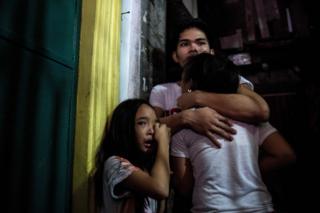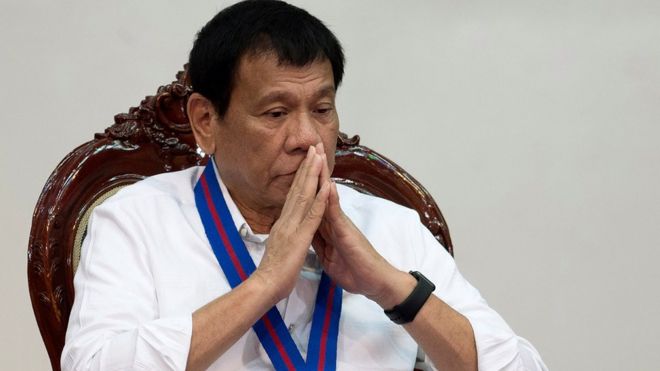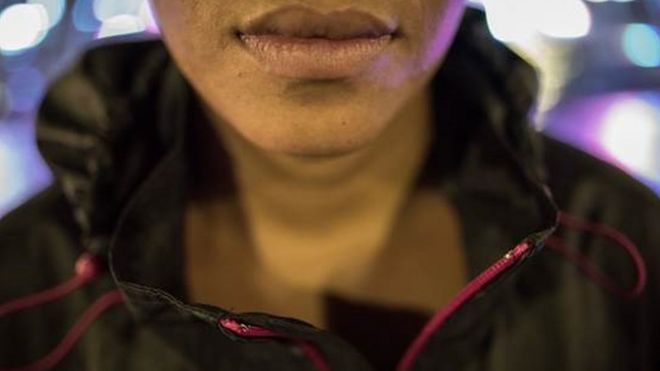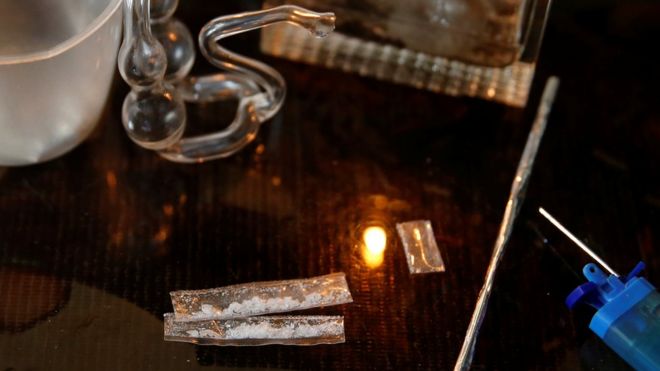xyz
Gold Member
- Oct 5, 2016
- 7,892
- 1,342
- 195
Not only that, but he wants to re-instate the death penalty as well:
Alarm over proposed Philippine law to jail 9-year-olds
Alarm over proposed Philippine law to jail 9-year-olds
Follow along with the video below to see how to install our site as a web app on your home screen.

Note: This feature currently requires accessing the site using the built-in Safari browser.
 )
)Meh. Let the alt-right have it's way with the planet for a while. The longest stretches of peace in history always follow instances of horrific strife.Not only that, but he wants to re-instate the death penalty as well:
Alarm over proposed Philippine law to jail 9-year-olds
The rights group also said in a report that the killings may constitute "crimes against humanity". More than 7,000 have been killed since President Rodrigo Duterte launched his "war" on the drug trade in July. He has always defended the crackdown, saying police were only authorised to open fire when threatened by suspects. But on Monday, the president suspended it and ordered a "clean-up" of the police force following the murder of a South Korean businessman by a group of rogue anti-drug police officers. There has been no government reaction to the Amnesty report, but the Philippine police have also consistently said those killed were resisting arrest.
Amnesty disputed this based on witness testimony and independent investigations, saying it was "deeply concerned that the deliberate and widespread killings of alleged drug offenders....appear to be systematic, planned and organised by the authorities". "Police officers routinely bust down doors in the middle of the night and then kill in cold blood unarmed people suspected of using or selling drugs. "In several cases documented by Amnesty International, witnesses described alleged drug offenders yelling they would surrender, at times while on their knees or in another compliant position. They were still gunned down."

Relatives crying as coroners carry away the body of an alleged drug dealer killed during a drug buy bust operation in Manila
Amnesty also said officers planted evidence and falsified reports to "cover their tracks". The rights group said there appeared to be financial incentives for the killings, with one officer claiming they were given an "under the table" payment for each death, as well as payments from some funeral homes. The rights group said the vast majority of those killed were poor and on "drug watch lists" prepared by government officials and shared with police. It said the lists were "deeply problematic" and that names could be put on it "based on hearsay and community rumour or rivalry, with little to no verification". The group spoke to 110 people for the report including witnesses of killings, victims' relatives, drug users, police officers, and members of government, civil society and religious groups.
Mr Duterte has come under heavy criticism from rights groups and Western countries for his hardline stance on drugs. But the shocking and high-profile kidnap and murder of the South Korean businessman prompted Mr Duterte to admit that the police is "corrupt to the core" and he suspended the drug war with all anti-drug units dissolved and ordered a re-organisation of their ranks. He has in the past sanctioned extra-judicial killings by the police, saying he would pardon them for such acts, and once said he would be "happy to slaughter" three million drug addicts.
Amnesty: Philippine police 'planned' drug war killings - BBC News
When you meet an assassin who has killed six people, you don't expect to encounter a diminutive, nervous young woman carrying a baby. "My first job was two years ago in this province nearby. I felt really scared and nervous because it was my first time." Maria, not her real name, now carries out contract killings as part of the government-sanctioned war on drugs. She is part of a hit team that includes three women, who are valued because they can get close to their victims without arousing the same suspicion a man would.

President Duterte came to power promising to crack down on crime and drugs
Since President Duterte was elected, and urged citizens and police to kill drug dealers who resisted arrest, Maria has killed five more people, shooting them all in the head. I asked her who gave the orders for these assassinations: "Our boss, the police officer," she said. On the very afternoon we met, she and her husband had been told their safe house had been exposed. They were moving in a hurry. This controversial drug war has brought her more work, but more risk too. She described how it began when her husband was commissioned to kill a debtor by a policeman - one who was also a drug pusher. "My husband was ordered to kill people who had not paid what they owed."

Maria, not her real name, is an assassin for hire.
This turned into a regular commission for her husband until a more challenging situation cropped up. "One time, they needed a woman... my husband tapped me to do the job. When I saw the man I was supposed to kill, I got near him and I shot him. " Maria and her husband come from an impoverished neighbourhood of Manila and had no regular income before agreeing to become contract killers. They earn up to 20,000 Philippines pesos ($430; £327) per hit, which is shared between three or four of them. That is a fortune for low-income Filipinos, but now it looks as if Maria has no way out.

Sachets of shabu, or methamphetamine (middle-lower part), is pictured among other drugs paraphernalia at an undisclosed drug den in Manila, Philippines
Contract killing is nothing new in the Philippines. But the hit squads have never been as busy as they are now. President Duterte has sent out an unambiguous message. Ahead of his election, he promised to kill 100,000 criminals in his first six months in office. And he has warned drug dealers in particular: "Do not destroy my country, because I will kill you." Last weekend he reiterated that blunt view, as he defended the extrajudicial killings of suspected criminals. "Do the lives of 10 of these criminals really matter? If I am the one facing all this grief, would 100 lives of these idiots mean anything to me?"
What has provoked the rough-tongued president to unleash this merciless campaign is the proliferation of the drug crystal meth or "shabu" as it is known in the Philippines. Cheap, easily made, and intensely addictive, it offers an instant high, an escape from the filth and drudgery of life in the slums, a hit to get labourers in gruelling jobs like truck-driving through their day.
What is Shabu?

The bill proposes to lower the minimum age of criminal responsibility from 15 to 9 years old to prevent what it calls "the pampering of youthful offenders who commit crimes knowing they can get away with it." "You can ask any policeman or anyone connected with the law enforcement: We produce a generation of criminals," Duterte said in a speech in Manila on December 12. Young children, he said, were becoming drug runners, thieves and rapists, and must be "taught to understand responsibility." The move to target children signals Duterte's determination to intensify his drug war, which faces outrage abroad and growing unease at home. The president's allies say his support in Congress will ensure the bill passes the House of Representatives by June. The House would approve the bill "within six months," said Fredenil Castro, who co-authored the legislation with the speaker of the House, Pantaleon Alvarez. It might face opposition in the Senate, but would prevail because of Duterte's allies there, added Castro.

Boys undergoing drug rehabilitation attend a lesson inside a government run drug rehabilitation centre in Bicutan, Metro Manila, in Philippines
National police chief Ronald Dela Rosa recently announced that he was suspending anti-narcotics operations, which have killed more than 2,500 people, while the force rids itself of corrupt cops. The announcement came after it emerged last month that drug squad officers had killed a South Korean businessman at national police headquarters. The killing of drug suspects has continued, albeit at a slower pace, with most following the pattern of killings that police have blamed on vigilantes. Human rights monitors believe vigilantes have killed several thousand people and operate in league with the police – a charge the police deny. Duterte has signaled he intends to continue his drug war. In late January, he said the campaign would run until his presidency ends in 2022.
'IN CAHOOTS WITH DRUG USERS'
Lowering the age of criminality was justified, Castro told Reuters, because many children were "in cahoots with drug users, with drug pushers, and others who are related to the drug trade." He said he based his support for the bill on what he saw from his car and at churches – children begging and pickpocketing. "For me, there isn't any evidence more convincing than what I see in every day of my life," he said. A controversial bill to restore the death penalty, another presidential priority, is also expected to pass the House of Representatives by mid-year, according to Duterte allies in Congress. Supporters of the bill to lower the age of criminality say holding young children liable will discourage drug traffickers from exploiting them. Opponents, including opposition lawmakers and human rights groups, are appalled at a move they say will harm children without evidence it will reduce crime.

A policeman investigates at the site where a 17 year old girl and a 21 year old man were killed by unknown motorcycle-riding gunmen in an alley in Manila, Philippines
There is also resistance inside Duterte's administration. A member of Duterte's cabinet who heads the Department of Social Welfare and Development opposes the move. And a branch of the police responsible for protecting women and children disputes the claim that children are heavily involved in the drug trade – a claim not supported by official data. Opponents warn that lowering the age of criminality would further strain a juvenile justice system that is struggling to cope. At worst, they say, with a drug war raging nationwide, the bill could legitimize the killing of minors. "What will stop them from targeting children?" said Karina Teh, a local politician and child rights advocate in Manila. "They are using the war on drugs to criminalize children."
IN THE FIRING LINE

President Rodrigo Duterte's outburst against the Philippine Daily Inquirer and ABS-CBN TV network in a nationally televised speech prompted a media watchdog group to call him a "petty tyrant, who mistakenly believes public office is an entitlement that allows you to flaunt the laws of the land." Duterte, who has had a thorny relationship with journalists, complained that his anti-drug campaign has been portrayed as targeting the poor. He also was incensed about accounts of his alleged corruption, saying he will resign if reports of undeclared bank deposits are proven.
Calling the owners of the Inquirer and ABS-CBN "fools," Duterte threatened to curse them and use the state-owned TV network to ridicule them "to get even." "There are press (people) who are sons of bitches and who know nothing but lies," he said in a speech at the oath-taking of government officials at Manila's presidential palace. "Inquirer, you've never been fair. I know that it's supposed to be antagonistic but fair? You're rude," Duterte said. "ABS-CBN is also rude, really rude." Presidential palace staffers deleted the expletives and curses in an official transcript of the speech they sent to news agencies.
Duterte's crackdown, which has left thousands of mostly petty drug suspects dead, has alarmed Western governments and prompted U.N. rights officials to consider an investigation. Duterte, who has denied condoning extrajudicial killings but has repeatedly threatened drug suspects with death, has lashed out at the U.S., EU and other critics. The 72-year-old leader, who won the presidency last year after serving as a city mayor for two decades, also fumed about news reports that speculated about the nature of his illnesses, and suggested that older people naturally develop health problems. He became visibly infuriated over a picture of him in his bedroom with an oxygen machine. Duterte has acknowledged suffering from illnesses linked to smoking and a motorcycle accident in the past, but has refused to issue a detailed statement on his health. Philippine Daily Inquirer Executive Editor Jose Ma. Nolasco said in a statement that it has been fair in its coverage of Duterte and his administration and has always included his side in any controversy. He said the newspaper runs a column on its opinion page in which Cabinet officials expound on government policies. There was no immediate statement from ABS-CBN.
The National Union of Journalists of the Philippines said Duterte's "foul-mouthed rant" against the two major news organizations "was absolutely twisted," adding it was the president who was rude and abusive. "It was a brazen abuse of your immense power as chief executive of this land and only shows how little, if any, appreciation you have of democracy and governance," the group said. It said Duterte's curses and threats would not prevent Filipino journalists from doing their work. The dominant Roman Catholic church, which has criticized Duterte's drug crackdown, also came under fire from Duterte, who urged the audience to read a book about Filipino bishops and priests who were accused of sexual abuse, corruption and other wrongdoing. "You read it and if you're still a Catholic the next day, you'll impress me," Duterte said.
Duterte threatens to humiliate news outlets for drug reports